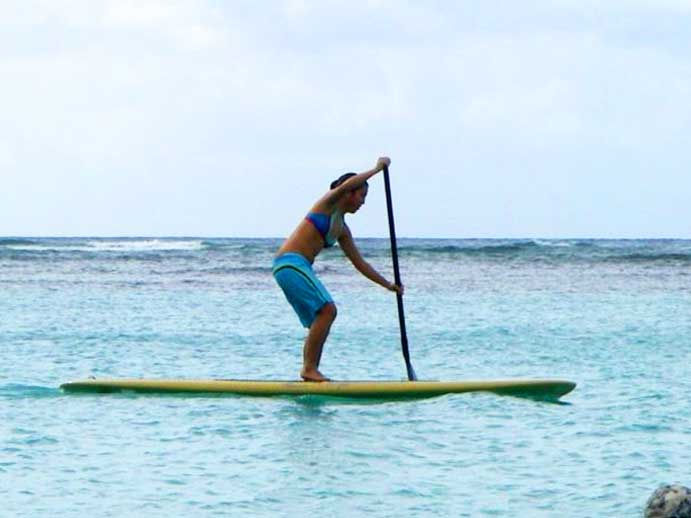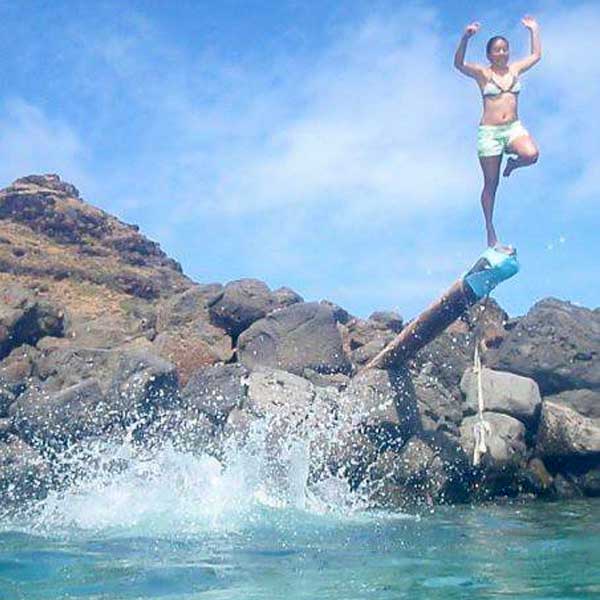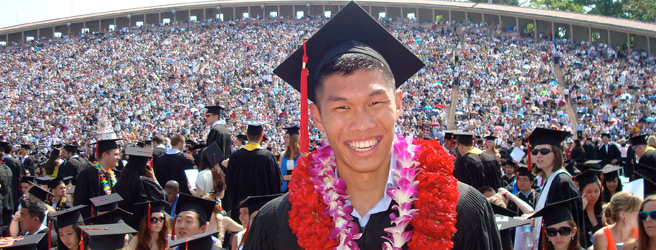 After College Lifestyles
After College Lifestyles
Chynna is an after school special education teacher in Honolulu, Hawaii. Chynna works to improve the social skills of children with learning disabilities. Read what her daily life entails and what it's like living in Hawaii.
Overview:
Career: After-School Teacher
Company Field: Special Education
Located In: Honolulu, Hawaii
Grew Up In: Honolulu, Hawaii
Graduated From: University of Oregon
Majored In: Theatre
Graduated In: 2011

Quick Stats on Being an After School Special Ed Teacher
Work Hour Flexibility: High
Quality of Lifestyle Outside of Work: Medium
Work Stress Level: Medium
Level of Routine Work: High
Interaction with Co-Workers: High
Pay Level (out of 5): $$$
Life of a College Grad Special Education Teacher
I work with kids that have learning disabilities i.e. Autism Spectrum, Asperger's Syndrome, ADHD etc. Being an After-School Teacher, I mostly help with improving a student's social skills. This is basically just after-school care until parents can pick up their children.
After School Teacher's Daily Routine:
6:45 AM Wake Up
12:30 PM Check in on Grandparents
12:45 PM Eat lunch
1:30 PM Drive to work, start prepping for the day's activities
2:00 PM Shift begins
2:00 PM - 3:00 PM Help students with homework
3:00 PM - 3:30 PM Snack/Recess
3:30 PM - 4:00 PM Depending on the day, it can range from arts & crafts to social skills, group games, movies, etc.
4:00 PM - 4:30 PM Indoor recess, use big equipment (yoga balls, mats, donut roller) to help with motor skills and sensory
4:30 PM - 5:30 PM Computer learning & students get picked up
7:00 PM Exercise/shower
8:00 PM Eat Dinner
9:00 PM Sleep

How To Get Into The Field:
Although I am working in this field, I am currently looking to get a theatre degree, so I am not fully aware of what an education degree requires. However, I started this job as a volunteer looking to do a service learning project and ended up getting hired after my volunteer work was finished. I would suggest that before someone decides to go into education, they would need to determine what grade level they would like to teach, what subject, and whether or not special education is something they are interested in. It is important to know that in Hawaii, generally, public schools require teaching credentials in order to become a teacher while private schools usually only require a bachelor's degree.
What Do You Really Do?
If someone would like to become a special education instructor/teacher, I would suggest volunteering at an institution that accommodates special education students. Working with special education students or learning disabled students is much different from working with kids that don't have those diagnoses. Everyday I have to keep to a schedule because typically, Autistic students need a constant routine to their day. It is comforting to them to know what task was just finished and which one is happening next. Most of the time I am correcting and explaining social cues to the students, as many of them don't interpret social cues the same way that others do.
Pros/Cons of Your Job
I love working with these students. What we may find as boring or unimportant, my students will find joy and appreciation. The hardest part of my job is the fact that while many of the students progress at the school and go on to succeed at other schools, it's difficult knowing the hardships they will face in the world outside of school. People generally don't understand the needs or feelings of those with Autism and will scoff or be rude to them. We as teachers aren't always going to be there to protect them from the ignorance of others. People who have a large amount of patience and compassion will love this job. Those who have a yearning to learn in different ways and help children learn in different ways will succeed in this field.
Living in Hawaii:

Quick Stats on Honolulu, Hawaii
Competition for Housing: High
Housing Cost: High
Population of Young People: Medium
Nightlife: High
Safety: Medium
Biggest Industries: Hospitality
The Life of a College Grad Honolulu, Hawaii
 What's it Like to Live Here?
What's it Like to Live Here?
Hawaii is typically seen as the destination of luxury and relaxation. It's a very laid-back atmosphere and not as much of the hustle and bustle of large cities. In this same way, people are not work-focused, but rather family-oriented. The people are generally very friendly and welcoming. Due to its proximity to Asia, Hawaii does have a lot of Asian influences (especially in food and culture). Weather is usually pretty nice: usually 85 degrees. Sunny days provide good beach days on the weekends or days off.
How Did I End Up Here?
I grew up in Hawaii so this place is home to me. However, I did venture out to Oregon for schooling and came back to Hawaii afterwards. The best part of living at home is being with my family and being able to do what I am doing now.
My Set-Up
I currently live at home with my parents. This is a common thing for new grads in Hawaii. Although I love being at home, there are places that I want to move to in order to pursue an acting career in the future (my major in college).
Closing Advice
Do what you want after you graduate. Don't go into a field because it's easy or pays a lot of money. While those things are an added plus, if you can't say that you love what you're doing then it's not worth the easy days or extra cash. If I had known out of high school that acting is what I wanted to do, then I wouldn't be where I am. However, it lead me to my current job which I am greatly appreciative of. But yes, do what you love, and love what you do.




